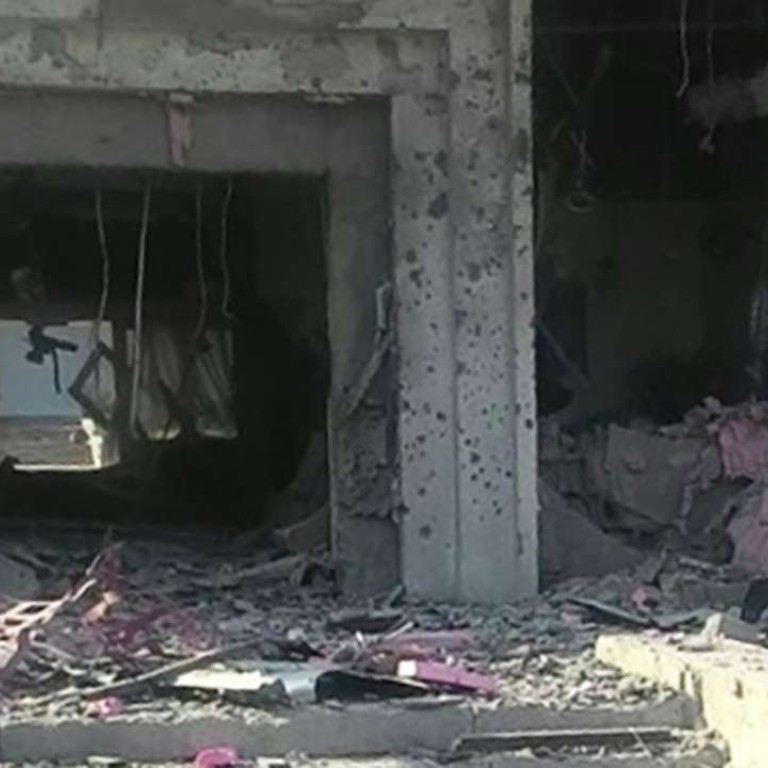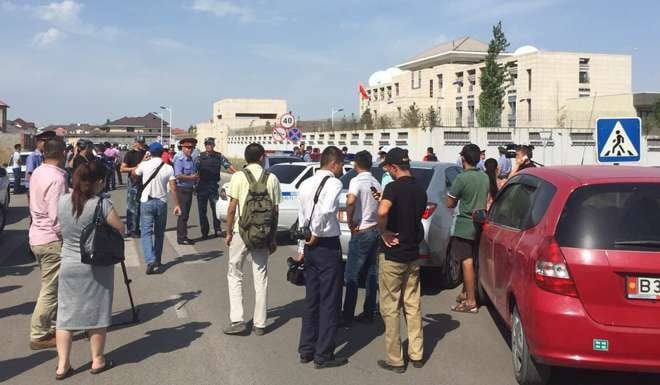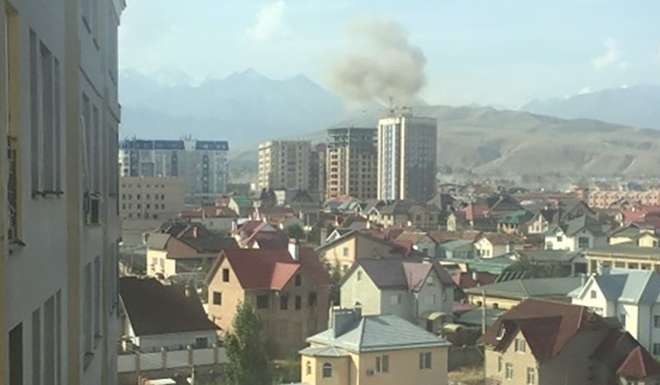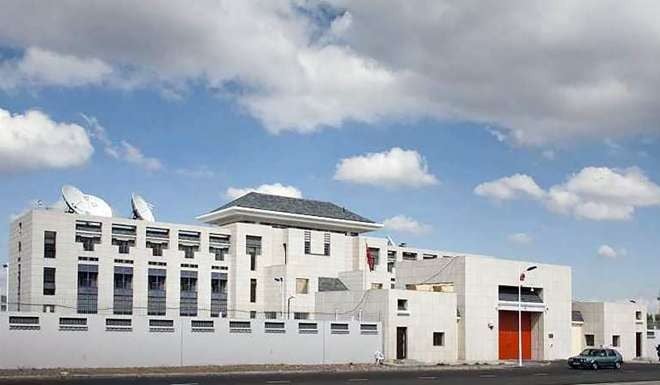
‘Suicide car bomber’ targeting Chinese embassy in Kyrgyzstan leaves one dead, three injured
Car fragments and body parts found as far as 300m away from blast site
A suspected suicide bomber rammed a van through the entrance of the Chinese embassy in Kyrgyzstan’s capital of Bishkek, killing himself and injuring at least three others yesterday.
Both nations labelled it a terrorist attack, and it comes as China prepares to host the Group of 20 summit this weekend.
Driving at “full speed”, the van crashed into the embassy compound through the property’s west gate and exploded in front of the ambassador’s residence, local media AKIpress cited a witness as saying.
The explosion damaged several buildings and shook nearby houses. A preliminary police report estimated the force of the blast was equivalent to as much as 10kg of TNT, AKIpress quoted a source in the force as saying.
The bomber was the only person killed, Deputy Prime Minister Jenish Razakov told journalists. He referred to the driver as a “terrorist”, while the source also said the attack was the work of a terrorist. In Beijing, foreign ministry spokeswoman Hua Chunying said China was “deeply shocked and strongly condemns the violence”.
The identity of the driver was being investigated. No organisation has claimed responsibility for the attack yet, and Kyrgyz President Almazbek Atambayev has ordered an investigation and tighter anti-terrorism measures in Bishkek and elsewhere in the nation.
The three injured embassy staff, who are all Kyrgyz nationals working either as security guards or gardeners, were “superficially wounded” and were being treated in hospital, according to the Chinese foreign ministry.

Local police escorted Chinese diplomats out of the embassy, while the nearby US embassy was also evacuated.
The incident happened a day before the Central Asian nation marks the 25th anniversary of independence, and only a few days before China kicks off the G20 summit on Sunday.
Hua, speaking at a regular press briefing, said China was confident the summit would go smoothly and be a success.

It is not the first time that Chinese diplomats have been targeted in the Central Asian nation, which borders China’s restive Xinjiang region.
In 2002, a Chinese diplomat was killed in Kyrgyzstan by people allegedly connected to Xinjiang’s Uygur separatists.
Beijing has sought to address security concerns in Central Asia through the Shanghai Cooperation Organisation and regularly holds anti-terror drills with member nations.
China considered deploying combat troops in Kyrgyzstan during the 2005 “Tulip” revolution.
Li Wei, an anti-terrorism expert at the China Institutes of Contemporary International Relations, suspected Uygur Muslim extremists were likely behind the latest attack.
“The most likely culprit is the Turkistan Islamic Party, formerly known as the East Turkestan Islamic Movement,” Li said.

Beijing also has an increasing economic interest in Kyrgyzstan with more than US$1 billion in annual bilateral trade. It is also a major foreign investor in the country, especially in recent years following the “One Belt, One Road” plan.
Li said Beijing should step up efforts to seek closer security cooperation with Kyrgyzstan and beef up security around Chinese diplomatic missions and China-backed projects in the region as Central Asia was becoming an increasingly important energy supply route for China.
About 50,000 Uygurs live in Kyrgyzstan, according to official Kyrgyz statistics, although some Uygur groups put the number as high as 250,000.
Additional reporting by Catherine Wong and Shi Jiangtao

